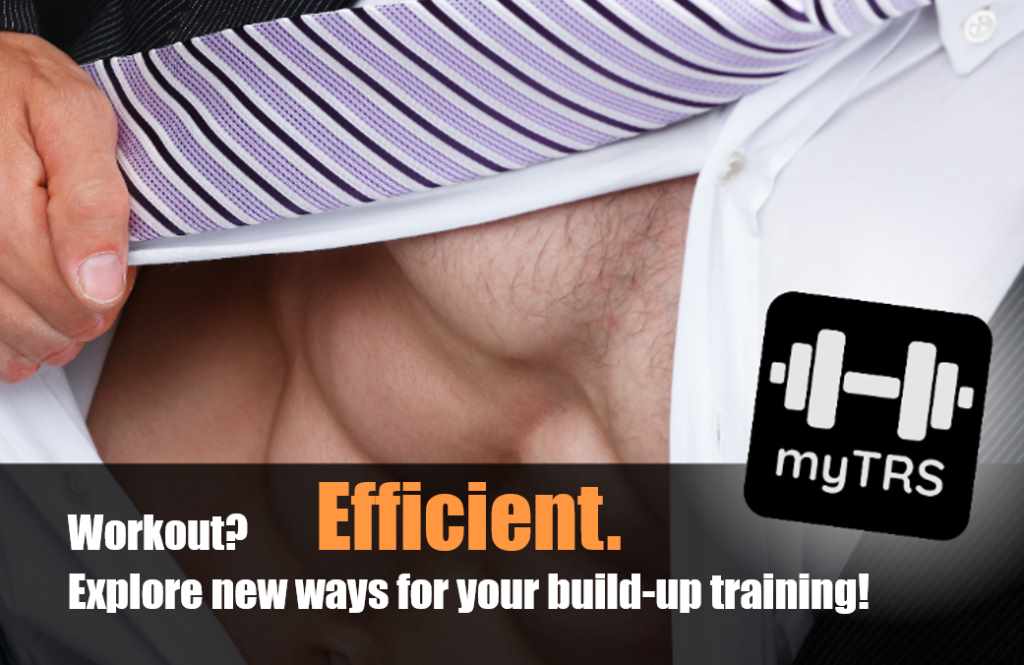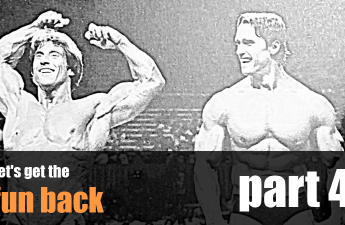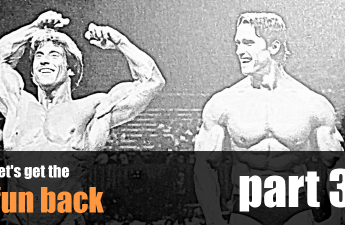A well-toned musculature or athletic body shapes under your business outfit? But without any intention of even getting close to competitions? Why bodybuilding could still be just the thing for you.
Special times call for special measures. Especially now, when so many things have been and are being called into question, there is often an opportunity to rethink one’s own behavior. And who knows: maybe even to change them. After all, much of what we do day in and day out has only been dragged along from day to day into our present thanks to habit.
But what the hell is a serious professional supposed to do with bodybuilding?
Just overcompensated complexes?
Even today, some people associate bodybuilding primarily with the exaggerated celebration of a pronounced body cult, perhaps as a result of juvenile frustration after bitter disappointments in the search for a sexual partner. But this cliché, which is fortunately much rarer today than it was in the seventies of the last century, works too much with stereotypes.
One quickly ends up with the question of what else could be the motivation for energy-sapping, time-consuming and hard training of one’s own muscles. Or, in other words: Why does one do this to oneself?
A healthy mind …
… in a healthy body. Yes, all right – this saying is really nothing new. However, the question is not whether you know this saying, but whether you live by it. Because all too many people who have already mastered their way on the job with flying colors struggle over the years with physical phenomena that can be traced back to a lack of exercise. And as many people know, such problems can be quite a distraction from what you actually want to do.
But is it just a matter of chance whether one gets problems with the locomotor system or the cardiovascular system or not? Is one at the mercy of one’s own genetic predisposition and can only bow to one’s fate? Or is it at least partly in one’s own hands in which physical condition one will spend one’s old age?
Not only health but also well-being
For all its importance, however, health is only one aspect among several. For example, it is the basis for what is called “well-being” – for a state in which one is consistently satisfied with one’s bodily perceptions.
Why this well-being is extra emphasized here? Because health and absence of disease are only the basis. However, one only feels really well in one’s body when a certain sensation of energy and strength is perceived. And thus the subjective impression arises that with the help of this vitality one can cope with the various burdens of life.
Ultimately, such a sense of well-being is often also the basis for optimism and confidence regarding the solvability of private and professional challenges.
Not all body regions are in the same condition
Who does not know this? Everyone has their weak points. For one it is the aching back, for the other the tension in the neck area. And many parts of the body function more or less well, and we take this state as normality.
Many working people exercise not least because it allows them to make peace with their problem areas. These body parts are then provided with very targeted training stimuli, whereas other muscles may only be subjected to minimal maintenance training. Targeted and specific single muscle training offers the advantage of effective individualization – because not every body is the same.
Form or function?
What is actually in the foreground for you when you think of muscles? Well-shaped and athletic body contours? Or what you can do with these muscles?
Bodybuilding is primarily focused on shaping the body. However, this does not mean that functional aspects do not play a role: A certain degree of muscular coordination is necessary simply to perform some exercises.
And the fact that with a well-toned body you don’t exactly have a problem showing yourself in a reduced degree of clothing on appropriate occasions is also obvious.
Time for the shaping of the own figure
The majority of people therefore seem to care about the characteristics of their own bodies: While some consider their weight to be too high, others feel underweight. Whether it’s broader shoulders, less fat in problem areas or a flatter belly: there are many “building sites” that people would actually like to take care of if it wasn’t just the time problem.
The advantage of a targeted build-up training is that you can also train only selected body zones. It doesn’t always have to be the whole body, or hours of endurance activities: Often, a short but intense load on two or three muscle groups is enough to set effective impulses.
By the way, a well-built and active musculature also has the advantage that it supports fat reduction. So: more strength for the stresses of everyday life, and at the same time less passive weight to lug around. But whatever the case, at the end of the day it’s all about feeling good in your own skin. And it seems obvious that body shape plays a certain role in this.
Lifelong companion with many facets: Bodybuilding
Once you have integrated bodybuilding into your life, you won’t want to do without it – the benefits that come with it are too convincing, for example
- The hard training, which intensively challenges the muscles, causes a switch in one’s own operating mode: it becomes easier to clear the head again after stressful days and thus to ventilate the brain.
- The experience of repeatedly going beyond earlier limits through progressive resistance training also shapes one’s own self-image over time and supports an optimistic basic attitude in the sense of “I will still manage this, too”.
And you can also benefit from training in areas that have not yet been explored in detail by science. For example, it has been found that muscles release hundreds of pepdides during activity, which can then trigger reactions in completely different organs – similar to hormones. Thus, a muscle can also be regarded as a secretory organ (gland) that can be activated specifically and effectively through training.
However, in order to reap these and many other benefits of progessive resistance training, it’s important to: start, stick with it consistently – and simply don’t stop. Preferably for the rest of your life.



